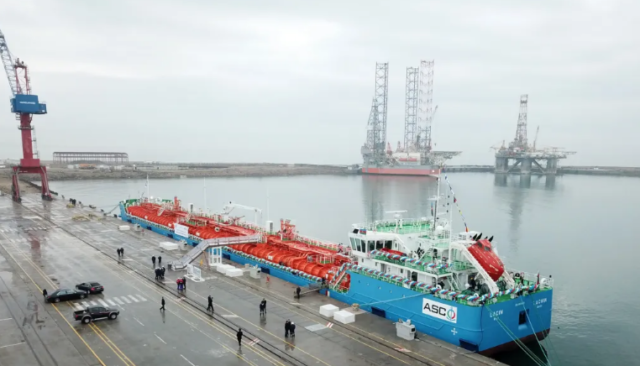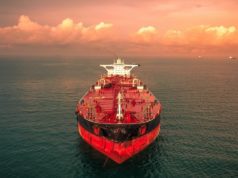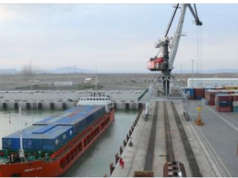Before the collapse of the USSR, the Caspian Sea was actually the “internal lake” of the USSR and Iran; relations between them in the part of the Caspian Sea were regulated by Soviet-Iranian treaties.
After 1991, there were no longer two, but five Caspian states: Russia, Azerbaijan, Iran, Turkmenistan and Kazakhstan. Difficult negotiations between these countries on the new status of the Caspian, the procedure for using its resources, navigation, etc. lasted more than 20 years and ended with the signing of an international convention in 2018. At the same time, a number of issues, especially in terms of the division of the oil and gas shelf, still remain unresolved: the five-party convention involves the conclusion between the parties of a number of bilateral agreements on the delimitation of the shelf, which involves complex negotiations between countries. The most uncompromising position is occupied by Turkmenistan and Iran, which insist on increasing the shelf area under their control. The water surface, with the exception of territorial waters, is declared the common property of the Caspian five, military activities of non-member states are prohibited here. The construction of underwater pipelines is recognized as the competence of the participating countries – this is a concession on the part of Russia, which previously did not want to allow competing oil from the southeast coast through the Baku-Tbilisi-Ceyhan oil pipeline. However, the stringent environmental requirements applied to the fragile Caspian ecosystem make it possible to intervene in projects that threaten it.
In the post-Soviet period, the Caspian oil and gas boom began, accompanied by hype about the supposedly inexhaustible reserves of oil and gas on the Caspian shelf. Azerbaijan and Kazakhstan have attracted large Western companies to their offshore oil and gas projects, while Russian companies have been somewhat discriminated against. Estimates of hydrocarbon reserves in the Caspian vary greatly, sometimes by an order of magnitude. A number of Russian experts express the opinion that the real reserves are much lower than those declared. This is indirectly confirmed by the reduction or exit of the Western giants SHELL, BP, Total, ENI and others from joint projects with Kazakhstan and Azerbaijan on the Caspian shelf. Their place is gradually taken by the Russian Rosneft and Lukoil on favorable terms.
The likely overestimation of available reserves by the post-Soviet Caspian countries, apparently, was to some extent advertising in nature in order to attract investment and international attention, strengthen sovereignty and domestic political positions.
The rapid economic development of Asian countries, the emergence of China and India as global economic players has led over the past 15-20 years to an explosive growth in trade flows in Eurasia and the need to create new efficient and safe transport corridors. The Caspian Sea is at the crossroads of East-West and North-South corridors. The geostrategic importance of the Caspian Sea itself and the Caspian region is exceptionally great and will only increase in the future. Maritime transit through the Caspian Sea is much more profitable than bypassing the sea by rail with the crossing of several customs zones and related bureaucratic formalities. This is true for both the East-West corridor and the North-South corridor. The development of container transportation has significantly simplified the technological processes of reloading cargo from sea vessels to rail and road transport and vice versa, which has made multimodal transportation competitive in terms of speed and price.
As a result, competition for cargo flows, especially transit ones, has developed between the Caspian countries. The objective advantage of a transit country, especially one that has a monopoly or a critically important position in the transport chain, is not only the receipt of payment for the provision of services. The countries of dispatch and delivery of goods are interested in the safety of transit, especially critical cargo, and, therefore, in the well-being of the transit territory. The influence of the transit state on its partners is so great that it can turn into blackmail. Russia has been watching and enduring for decades, delivering gas to Europe through Ukraine. That is why both the exporter and the importer are interested in diversifying supply routes.
Success in competing for cargo flows in the Caspian depends on port facilities and related infrastructure, including rail and road access. The port economy as a place of “assembly and disassembly” of cargo flows is considered one of the most complex elements of the transport infrastructure.
For various, mostly subjective reasons, Russia lags behind other Caspian states in building new modern port facilities. The old port of Makhachkala is located in close proximity to residential development, its expansion is difficult, the port of Astrakhan is overloaded with grain cargoes, the new port of Olya has a design capacity of only 1.6 million tons per year. The promising new port of Lagan in Kalmykia with a capacity of the first stage of 12.5 million tons per year and a total capacity of 22.5 million has yet to be built, and this is not a matter of one year. In general, the current capacity of cargo handling in the Russian ports on the Caspian Sea is 16-17 million tons per year.
For comparison: the already operating port capacities of Azerbaijan are 25 million tons, Kazakhstan – 21 million tons, Turkmenistan – 17 million tons, Iran – 30 million tons.
The Russian Federation lags behind other Caspian countries in the development of port infrastructure, although it really needs it: after the closure of European ports for the Russian cargo fleet and other sanctions restrictions, commodity flows turn to the east. Following his recent visit to Iran, Russian Deputy Prime Minister Alexander Novak said that the Islamic Republic could become a gateway for Russian exports and imports, and cargo turnover with it should double from the current 15 million tons in the coming years to 30 million tons or even 50 million tons. But these are only plans so far.
The development of infrastructure in the Caspian is such an important issue that President Vladimir Putin personally took control of it. At a meeting held on May 24, the president announced “the need to speed up this area of work”, the inadmissibility of delays and failure to meet construction deadlines. The President instructed to develop the infrastructure with a reserve for the future, so that its capacity can be quickly and inexpensively increased:
“I consider it right to abandon the inertial scenario in the development of transport infrastructure, when, based on current needs – only current ones, the cargo base is estimated, and then, based on these estimates, routes are designed and built, their capacity is laid: then it is not enough. If we act in such a static logic, then we will always be catching up, the bandwidth will always be lacking.
The importance of the Caspian and the Caspian Sea, the importance of infrastructure development is understood not only in Russia. Many events in the adjacent regions are somehow connected with the struggle for cargo flows. Disputes are still ongoing between Armenia and Azerbaijan on the creation, status and management mechanism of the Zangezur (Syunik) corridor, which will not only connect the Nakhichevan exclave with Baku, but also should play a significant role in the development of regional infrastructure with access to the North-South transport corridor.
Of the 5 Caspian states, two – Azerbaijan and Kazakhstan – are active members of the Organization of Turkic States under the auspices of Turkey, Turkmenistan has an observer status. Further strengthening of this organization and, consequently, of Ankara in the Caspian is not in the interests of Russia and Iran. Kazakhstan, Azerbaijan and Turkey have already taken over the lion’s share of international transit flows and thus strengthened their influence in the region. Russia maintains partnership relations with these countries, but partnership, as a rule, does not exclude, but presupposes competition.
As the geostrategic importance of the Caspian Sea inevitably grows, so will the interest in it from regional and global players. Russia dominates the Caspian militarily, but it is impossible to ensure competitiveness without modern infrastructure, especially when the Caspian-Iranian route becomes vital for our country, another window to the world for our country.
It remains to be hoped that after direct instructions from the president, officials will not disrupt Russian plans in the Caspian Sea, and our infrastructure gap will be overcome as soon as possible.
source: https://regnum.ru/news/polit/3604564.html







